Hello from everyone at the Environment Agency,
As we start to see signs of warmer weather on the way, many anglers will be glad to hear that from this month, our brand new licences are available.
We are pleased to bring you our latest updates. We have been working across the country protecting fisheries, carrying out patrols, working with angling clubs to support improvements to facilities, as well as preparing for close season – and much more.
2021 fishing licence images revealed
Our latest fishing licence images, designed by artist David Miller, are now available to all anglers looking to renew their licences and to newcomers who are looking to try the sport for the first time. The images this year celebrate some of our most iconic species. The salmon and sea trout licence depicts a vibrant sea trout. A striking golden rudd is depicted on the 2-rod coarse and trout licence and a mighty stalking pike now features on 3-rod coarse and trout licence.
The release of the bright and colourful images provides yet another incentive to go fishing. We hope to see more people trying out the sport this year after the boom seen last summer when many new anglers discovered how fishing is a fun, healthy and safe way to spend time outdoors and reconnect with nature. In fact, there were an extra 123,000 anglers last year and really encouragingly, of those who were first time anglers, over 20% were female.
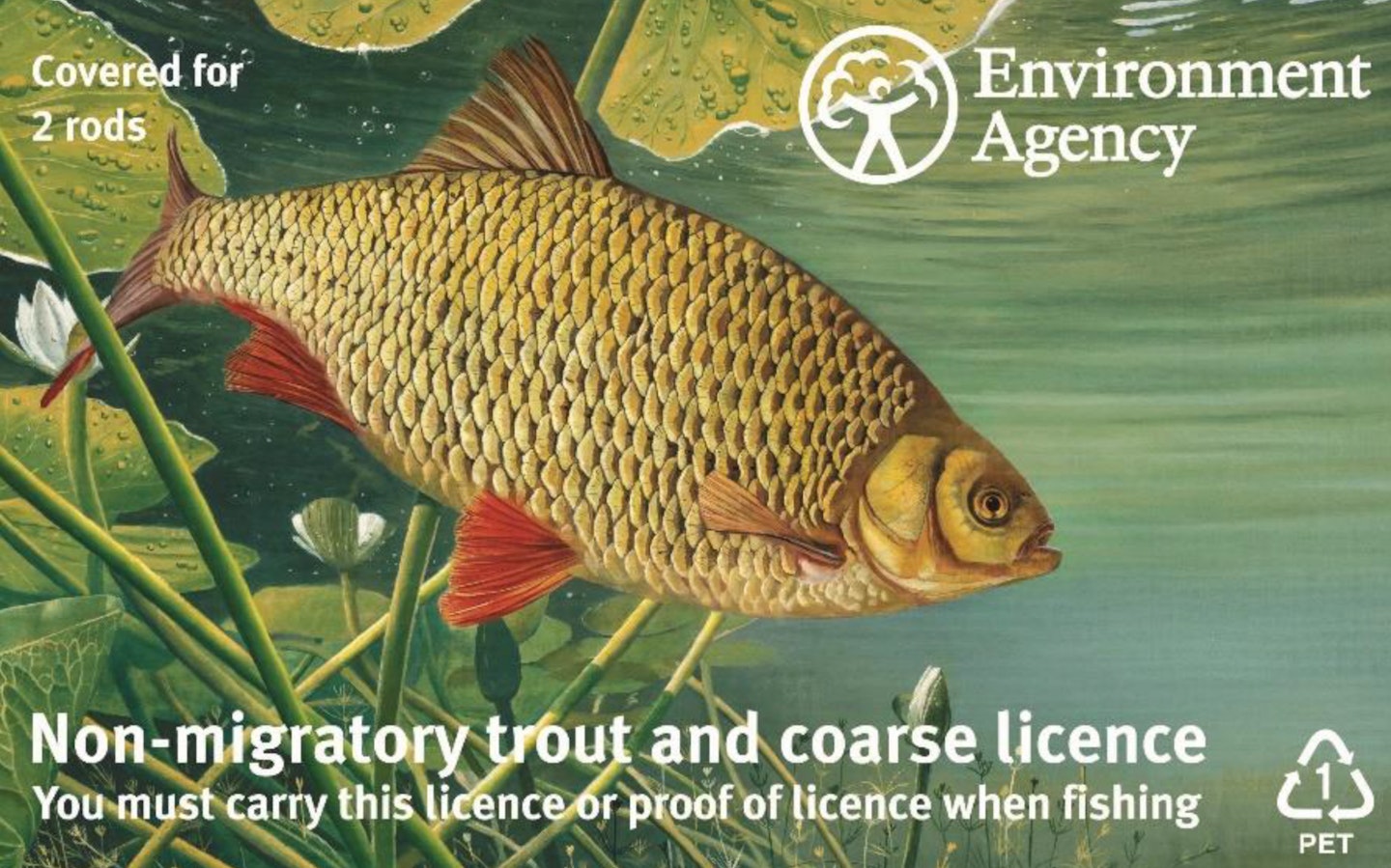
Close season for coarse fishing gets underway for 2021
The annual close season is now in effect. The close season helps to protect coarse fish stocks across England when they are spawning by preventing fishing for coarse fish in rivers, streams, drains and specified canals, as well as ‘sites of special scientific interest’ (SSSI) stillwaters.
Throughout the close season, Environment Agency (EA) officers conduct patrols to detect and deter close season fishing, as well as keeping an eye out for other illegal activity that could threaten fish stocks. As part of Operation CLAMPDOWN, now in its ninth year, Angling Trust (AT) volunteers support the EA by keeping watch on riverbanks and reporting incidents to the 24-hour incident hotline.
We saw many new anglers join the sport last year - if you know a new angler, please remind them of the close season dates. Anglers are still able to fish on many other stillwater and canal fisheries while river coarse fishing is off limits.
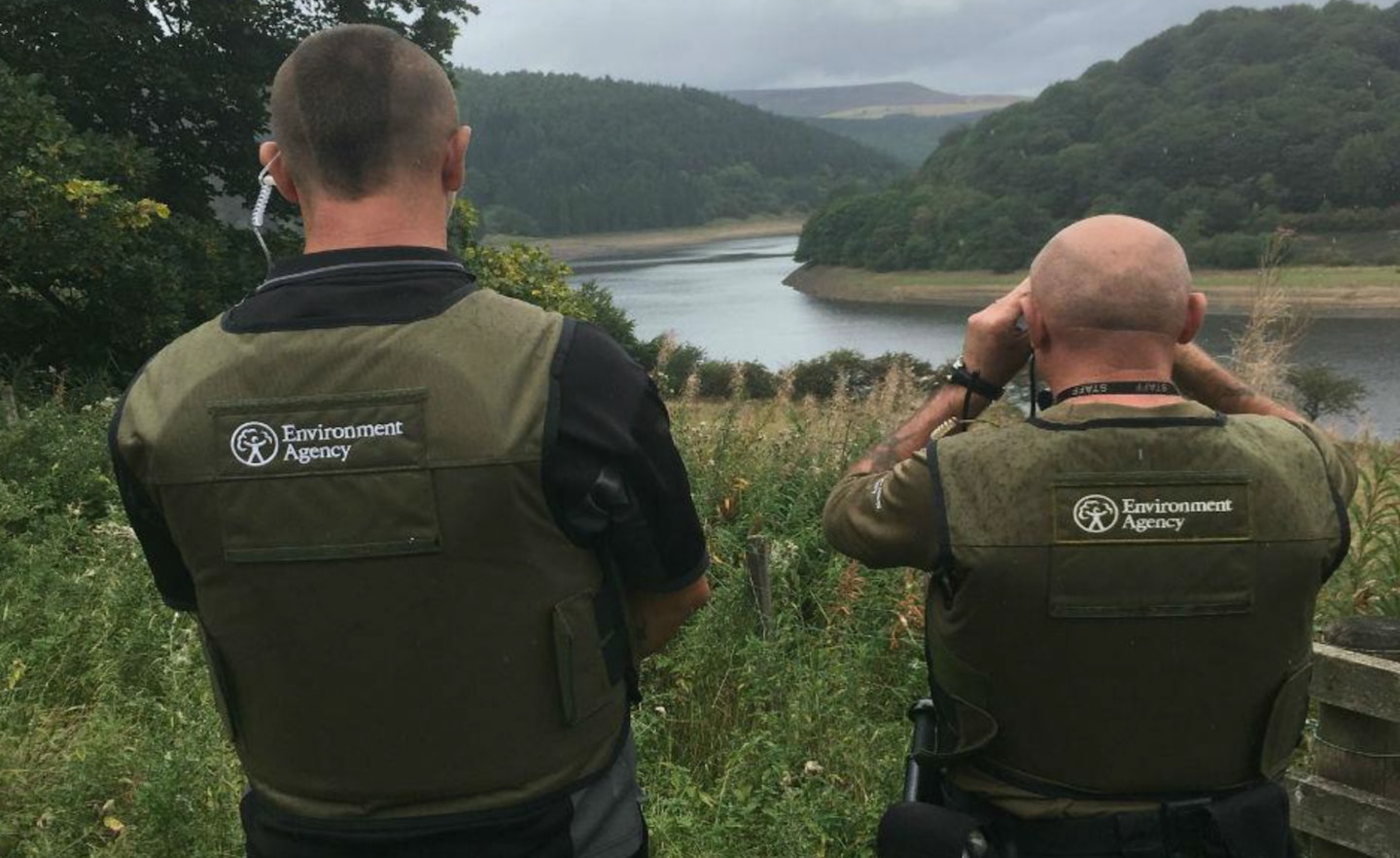
The Met joins the EA and Angling Trust in pledge to tackle illegal fishing
On the 1st March, senior Metropolitan Police Service (MPS) representatives from the Wildlife Crime Unit signed a formal agreement, joining Operation Traverse in a bid to tackle illegal fishing and anti-social behaviour at fishing hotspots across London.
Operation Traverse is a multi-agency initiative co-ordinated by the Angling Trust in partnership with the Environment Agency to crackdown on illegal fishing and fish theft. Most police services have joined either Operation Traverse or its sister operation, Operation Leviathan.
The MPS has made a firm commitment to working collaboratively with partners through the Wildlife Crime Unit to share intelligence and raise awareness of fisheries crime. An important part of the MPS commitment to tackle poaching issues across London will include the additional training of Borough Wildlife Crime Officers by the Met’s Specialist Wildlife Crime Unit, the Environment Agency and the Angling Trust Fisheries Enforcement Support Service (FESS). The addition of the MPS is a welcome boost to further strengthen existing efforts by our officers alongside the Angling Trust’s volunteer bailiffs to combat illegal fishing and fish theft.

EA rescues stranded fish following bank breach
Last month, our team out in Northumberland was busy relocating stranded fish after the River Coquet took a new course after overtopping its banks. The Environment Agency and local partners had been preparing for the natural phenomenon, which had been expected.
Following the breach, Environment Agency fisheries specialists were quickly deployed to relocate fish stuck in a cut-off stretch of river to ensure their survival. Over 250 fish were rescued and returned to the main river, including juvenile salmon, trout and lampreys. Experts are also working with Natural England to monitor the new course and are keeping a close eye on any environmental impact.
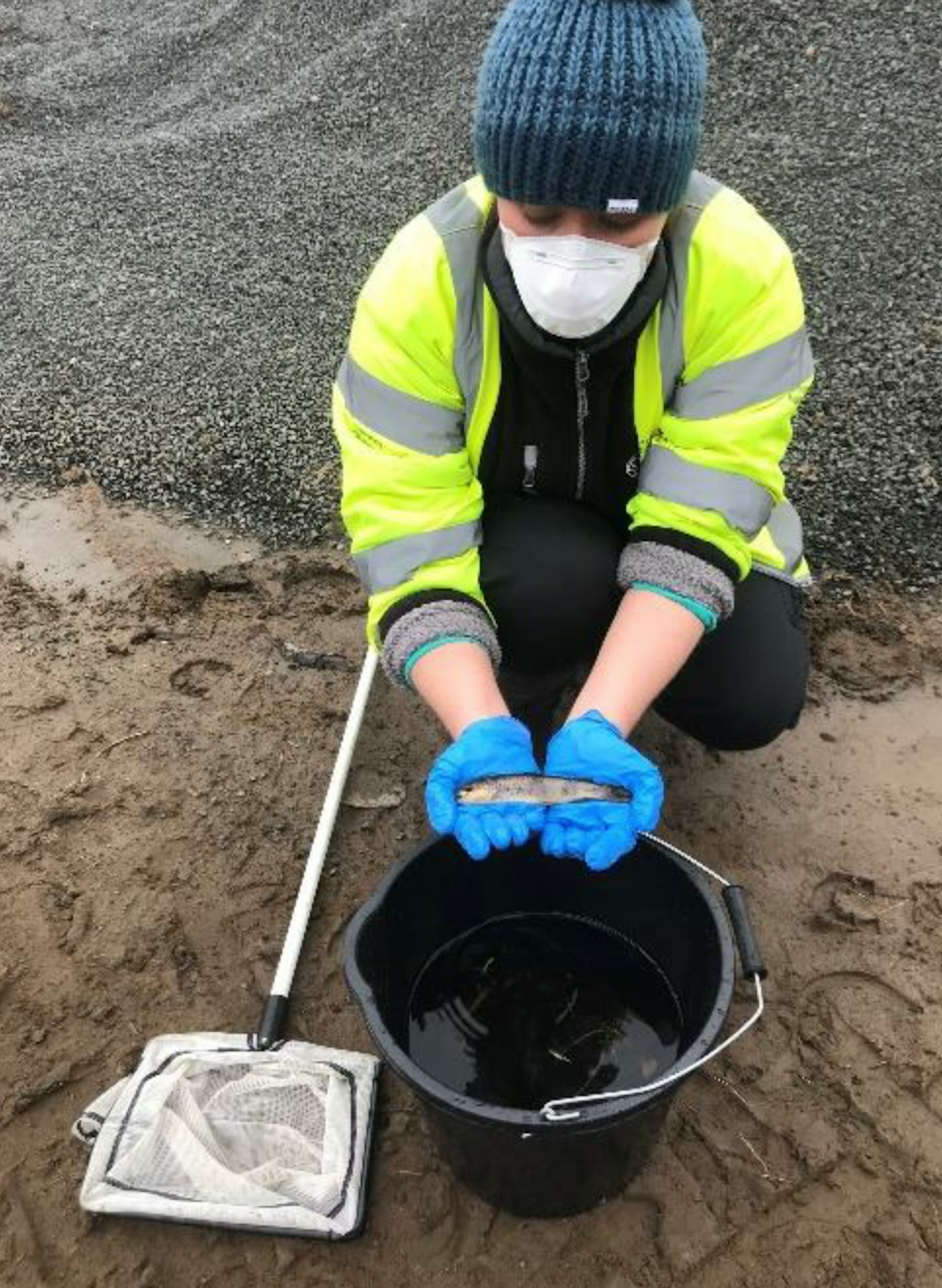
EA reaches out to angling clubs in bid to improve accessibility
Fisheries officers from our teams in the East have been visiting fishing sites with local fishing clubs to identify potential opportunities to support projects to improve access and services for anglers of all abilities. Our officers are looking at many sites, including one on the River Nene where they are exploring how they can work with local club volunteers, landowners and other partners to deliver these improvements.
Our officers were also out on the River Nene with our sonar equipment surveying for fish, looking out for illegal nets and carrying out patrols.
Sonar surveys also continue on Whittelsey Dyke and Bevills Leam looking at winter stock aggregations. Whilst on Bevills Leam, our officers discovered a lost, licensed fyke net which was quickly recovered. By removing the fyke we were able to free some tench, ruffe and roach from the net and prevent any further fish being trapped. Another illegal net was
reported in a lake in the south east – it was removed and the fish released unharmed. Click here to see our update on Twitter.
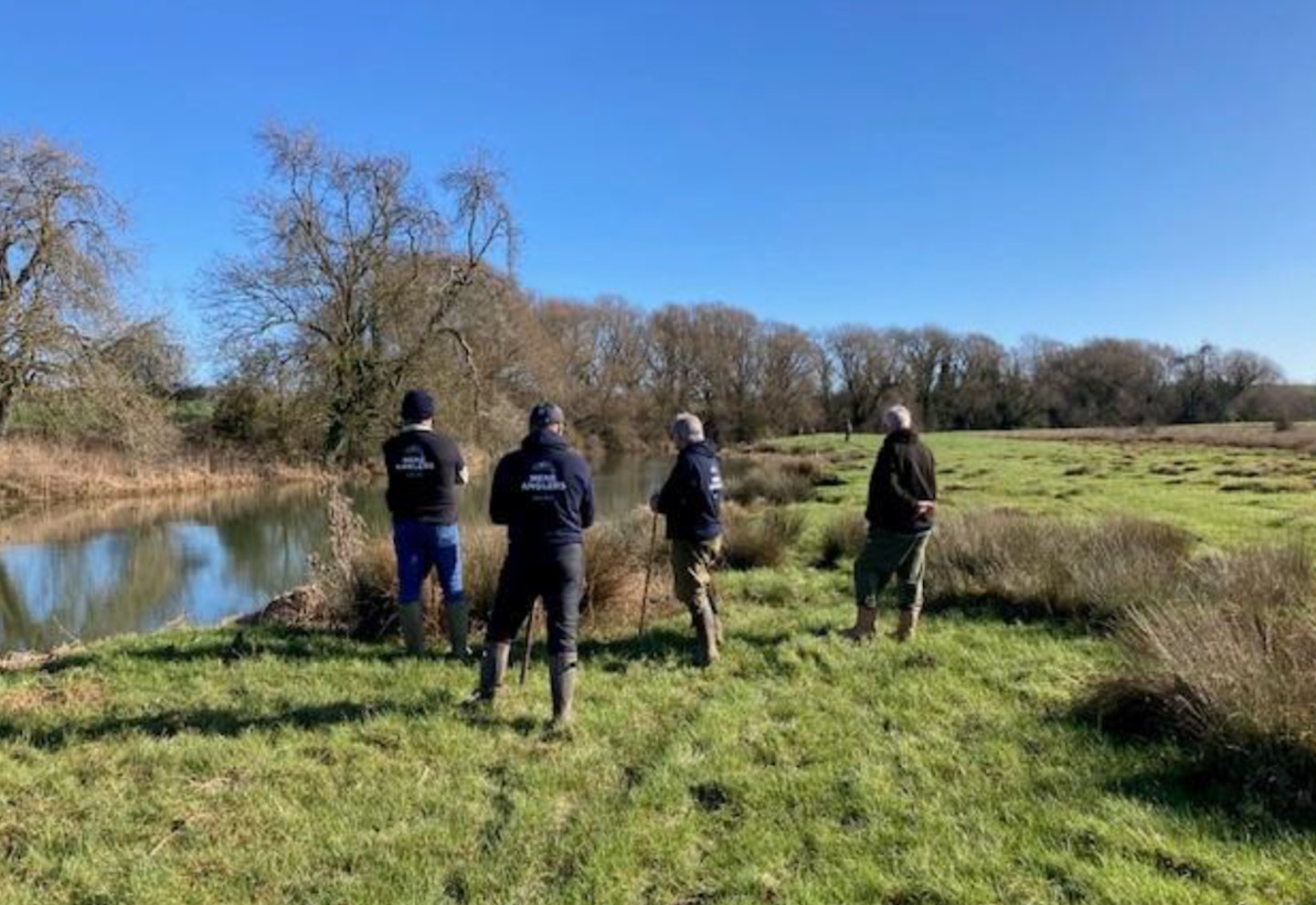
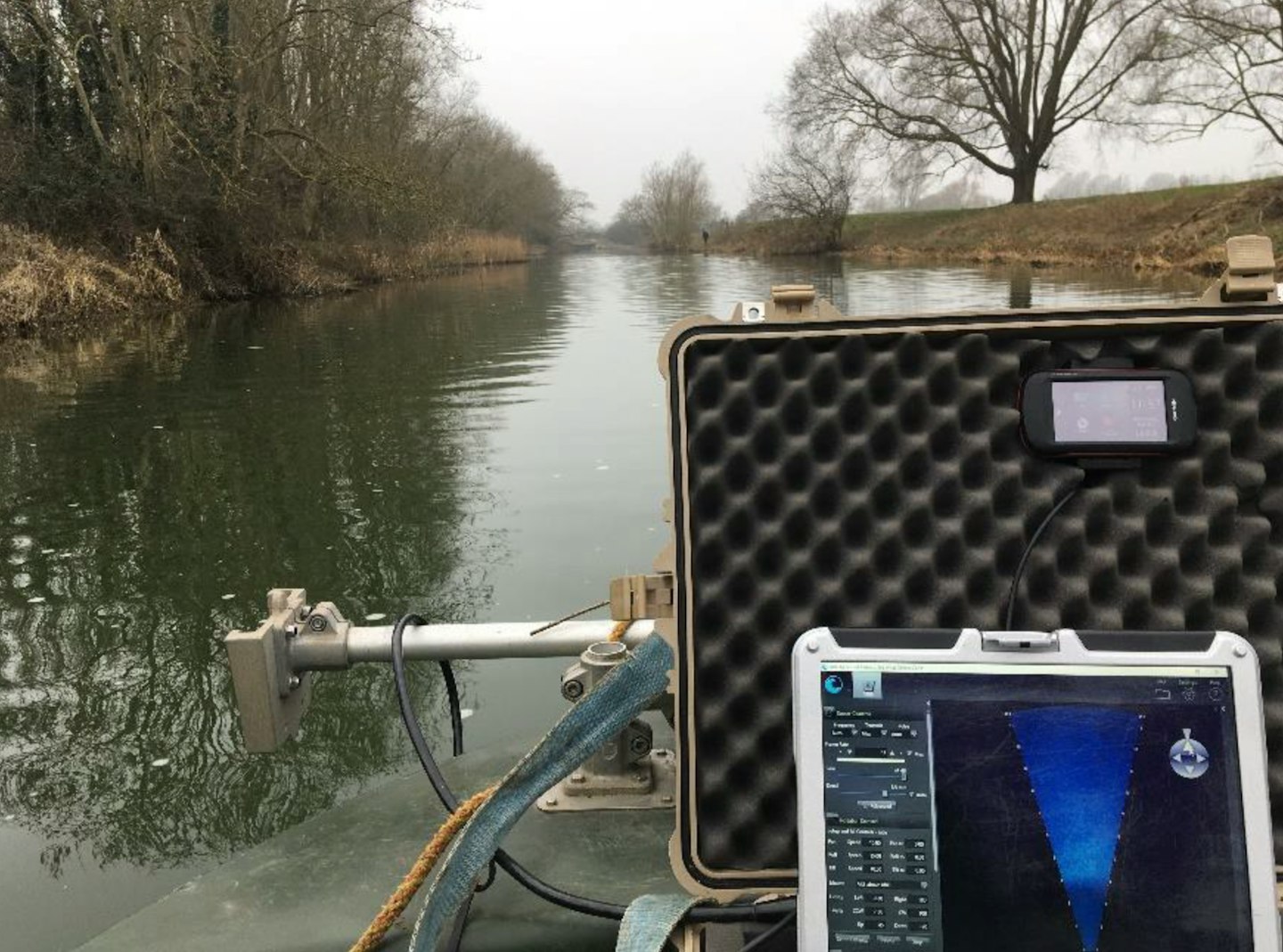
Wildlife set to flourish after project completion on River Stour
A partnership project benefiting a range of wildlife has been completed on the River Stour, near Bures, on the Essex/Suffolk border. The Environment Agency worked with partners on a river and floodplain enhancement.
The project, which was funded through Defra’s Water Environment Improvement Fund, will help water voles, fish and invertebrates flourish.
This stretch of the Stour has historically been modified to facilitate milling, navigation and land drainage. The project was focussed on improving the condition of the stretch by enriching the habitats along the river and enhancing connectivity with the floodplain.
The project has restored more than 400 metres of floodplain ditches, reconnecting them to the river and selectively deepening them so they remain wet at all times. This has substantially increased the area of wetland on the site, providing additional habitat for fish, aquatic invertebrates and aquatic plant species.
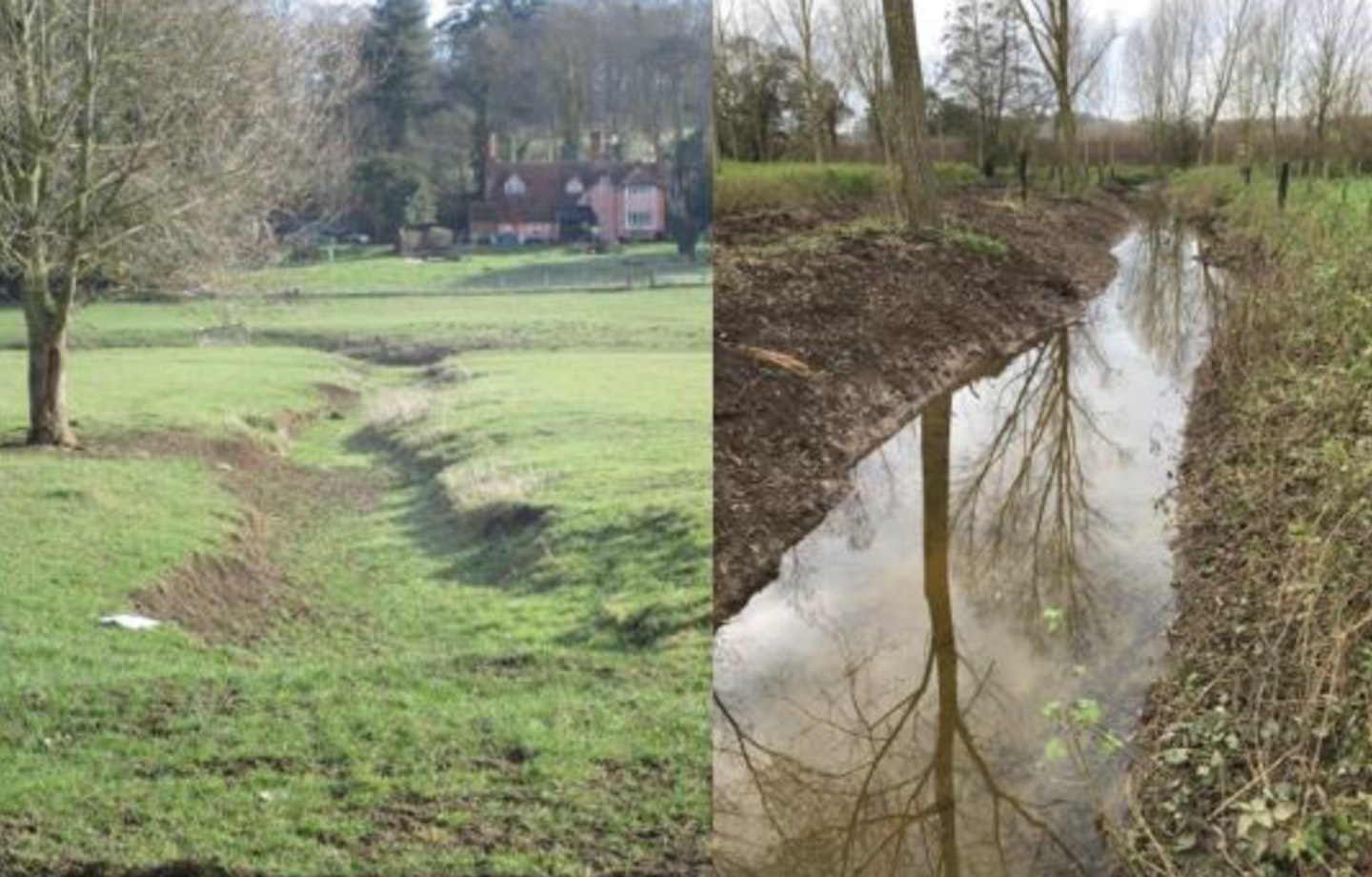
Proposed new byelaws to protect salmon stocks on the Severn
If you haven’t already read it, our consultation seeking views on proposed measures on the Severn opened on 5th March. We are greatly committed to protecting salmon and we’re urging all anglers to submit their views and have their say. We hope the potential measures will contribute to a reversal of the current decline of returning adult salmon numbers.
Reducing the taking of salmon is only one part of the Environment Agency’s larger national programme to protect salmon stocks. Our efforts to protect salmon stocks include removing barriers, improving water quality, minimising predation and implementing better agricultural practices and addressing unsustainable water abstractions. We are working alongside Natural England on the ‘Unlocking the Severn’ project, led by the Canal and River Trust which will benefit salmon and continue efforts with the Wildlife Trust for Birmingham and the Black Country, Worcestershire Wildlife Trust and Severn Rivers Trust to deliver the ‘Salmon on the Stour’ project. We must all work together to protect this precious, much-loved species.
Impressive catch highlights water quality improvements
A member of the EA’s National Customer Contact Centre team, Bruno Carette, recently caught this whopping 25 pound pike.
Not so many years ago this impressive catch wouldn’t have stood a chance to grow to such a large size. Previously the water, which flows from an abandoned colliery near Staveley in Chesterfield was contaminated with overspills from a former nearby chemical plant. Then the Environment Agency, in partnership with the local council, stepped in to improve the water quality and now it’s is so good it provides home to beautiful pike like this.
Bruno lured the fish with a small spinner. As he was bringing it in, with his rod bent double, small fish were jumping out of the water in fear of being eaten by the massive predator.
Don’t forget to stay in touch!
You can stay up-to-date with the latest news and information from the Environment Agency on Twitter and Instagram at @envagency.
